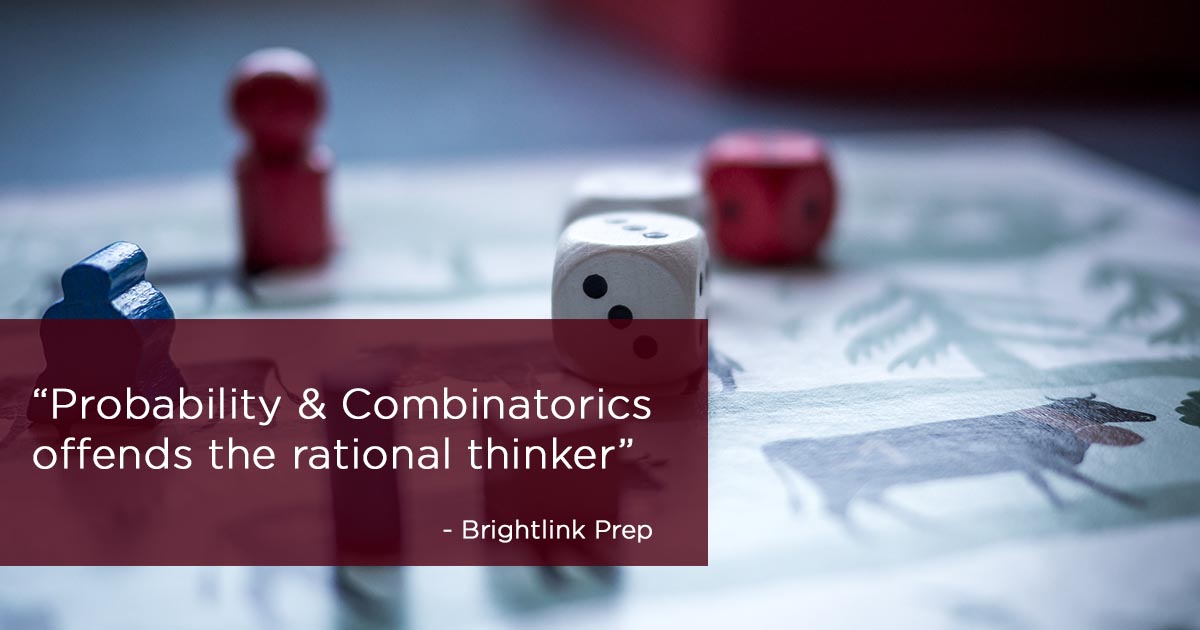In this Article
Should I Study Probability and Combinatorics for GRE?
‘Most’ GRE students dislike studying probability and combinatorics. (Permutations & Combinations).
In my experience, I would say not ‘most’ but ‘all’. But what is the reason for this dislike?
Prob. & Comb. is difficult because it is not nearly as formulaic as most of the other mathematical topics. In Math, often, there is one way to solve the problem. On probability, there are several smart but counter-intuitive ways to solve a question. Many of those ways are confounding even after using them to get a solution.
And after solving, students can’t tell whether or not they got the right answer.
Hence, students often feel that each problem approach is very different from the example questions that they have seen before. All this causes a lot of frustration.
ly way to grasp prob. & comb. on the GRE is by doing a LOT of practice until it all begins to come more naturally. But that requires a lot of work for GRE aspirants.
I have also experienced that few students learn any probability & combinatorics in school. Most students even skip these topics in school for the aforementioned reasons.
SEE ALSO: The only GRE Books you will Ever Need!
So is prob. & comb. worth all the hard work?
For some Yes but for others No!
In order to decide whether you should agonize over probability and combinatorics, it would be helpful to explore how many questions you are likely to face related to these topics on the exam day.
Generally, on average you can expect to find a total of 2-3 (out of 40) probability + combinatorics questions on the actual GRE exam.
SEE ALSO: How Many Probability Questions Will I See on GRE?
Therefore, I’ll advise you guys to leave probability and combinatorics altogether if
- you generally struggle at Math or
- you have limited time to prepare for the test
In either of the above two scenarios, focus a lot on other topics such as word problems, algebra, and data interpretation, which will show up a lot more frequently. There is a higher pay off by studying these topics since they are relatively easier to master. 2-3 probability and combinatorics questions will not dent your score. But not focusing on the others will.
Do not skip probability if you are aiming for a high 165+ quant score. To score more than 165 on the quantitative section of GRE, you cannot get more than 3-4 questions wrong in total. Hence the 2-3 GRE probability and combinatorics questions become ever so vital.
To sum up, there is more than one reason why these problems are hard. If you want to score really high on the GRE quant section, then study these topics. In that case, the best strategy is to take each problem piece by piece and map it out. Don’t panic. Combinatorics & probability offends the rational thinker but with a little patience and lot’s of practice, it gets a little easier.

